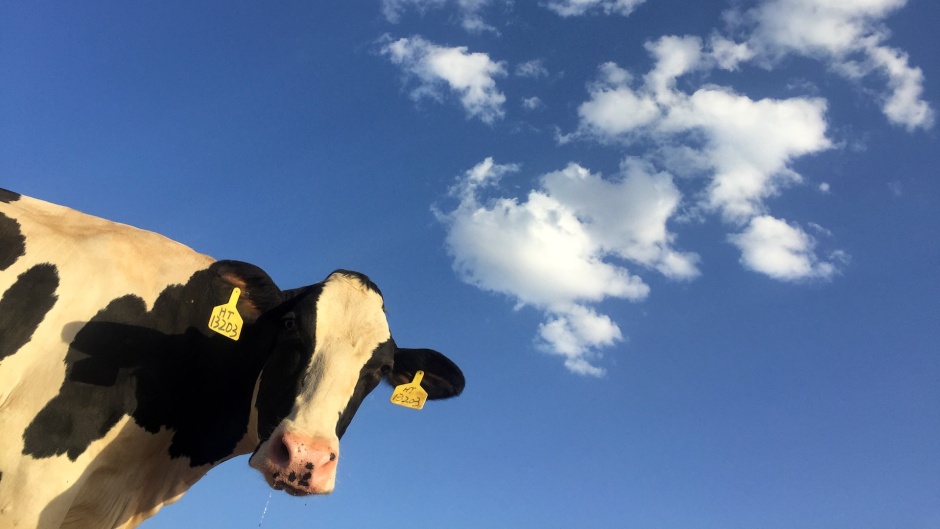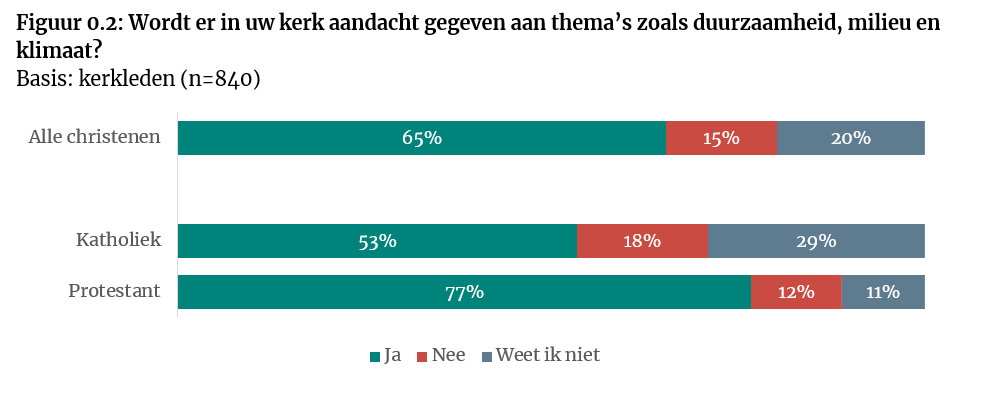Does the lifestyle of Christians show a real concern for creation care?
Recent surveys in Germany and the Netherlands analyse the daily decisions of church members to see if they differ from the rest of society.
08 NOVEMBER 2022 · 12:21 CET

Climate change, desertification, energy crisis, and other issues are back in the headlines as tens of thousands gather these days in Egypt for the UN Climate Change Conference of the Parts (better known as COP 27).
Dozens of Christian organisations and movements around the world have been working to give answers to such issues with a biblical perspective. But what difference does the lifestyle of regular Christians make in the area of creation care?
Two recent studies in Germany and the Netherlands have shown some interesting answers.
Germany: differences between mainline Protestant and free evangelicals
“Members of Christian congregations are not less environmentally conscious than the population as a whole, but neither are they significantly more so”, says Thomas Krök of the German Academy of Christian Leadership (ACF). He presented in November 2022 the outcome of an online survey with 900 church members, which was combined with 13 focus group discussions in churches.
According to German magazine Pro Medien Magazin, the findings showed members of the Protestant Church (EKD) were more engaged with environmental issues than the members of free evangelical churches. A reason could be that mainline Protestant Churches are implementing ecological initiatives such as “the Green Rooster” programme, which promotes energy saving and sustainability policies in church buildings.
Sermons and informal discussions in a church context were also more frequent in these EKD churches.
The study found less awareness among members of free evangelical movements such as the Federation of Free Evangelical Churches (Bund FEG) and the Gnadau Federation, among other reasons, because there is “more emphasis on spiritual concerns, i.e. evangelism and spiritual growth” in these movements, Krök said.
The statement “Because God is almighty, He does not allow his creation to be destroyed by humans” was agreed to by around one third national Protestant church members, compared to two thirds of the respondents from free evangelical congregations.
Free evangelicals also expressed more concern than mainline Protestants about the protection of the planet becoming a kind of secular religion.
But all groups of Christians surveyed agreed that the growth of the industrialised world had reached the sustainable limits of nature.
In answers to Pro Medienmagazin, around 40 Christian theological institutions said the issue of creation care is an “underlying issue” in most of their teaching about Bible and society.
Netherlands: meat, transport, and having children
In the Netherlands, a survey conducted by I&O Research for the Christian newspaper Nederlands Dagblatt found that there were no big differences between committed Christians and the rest of the population when it came to a sustainable lifestyle.
According to the answers collected by European news website cne.news, four in five Christians in the Netherlands are concerned about climate change. But in practice, their carbon footprint was very similar to that of the rest of the population.
Dutch “active Christians” surveyed fly less than the average but eat more meat on a weekly basis than the rest of the population (3% said of Christians said they were vegans, compared to 5% of all the Dutch).

Graph: Protestants and Catholics say they have heard sermons about creation care issues. Asher van der Schelde, who conducted the study, said theology did not seem to make a big difference in the daily life of believers in the area of environmental care, despite 73% of Protestant and 53% of Catholics saying they had listened to sermons on environmental care preached at their home church.
“Among Christians, biblical notions like stewardship and charity play a big role, as does their emphasis on sobriety. Yet Christians do not differ greatly from non-Christians in their behaviour and thoughts”, van der Schelde concluded, according to cne.news.
But his research group found “a striking difference” when it came to having children. “Christians with climate concerns rarely indicate that they think it is unwise to have children given climate change (13% of Christians with many climate concerns think so), while this is twice as common (26%) among the general population with many climate concerns”.
Published in: Evangelical Focus - life & tech - Does the lifestyle of Christians show a real concern for creation care?
